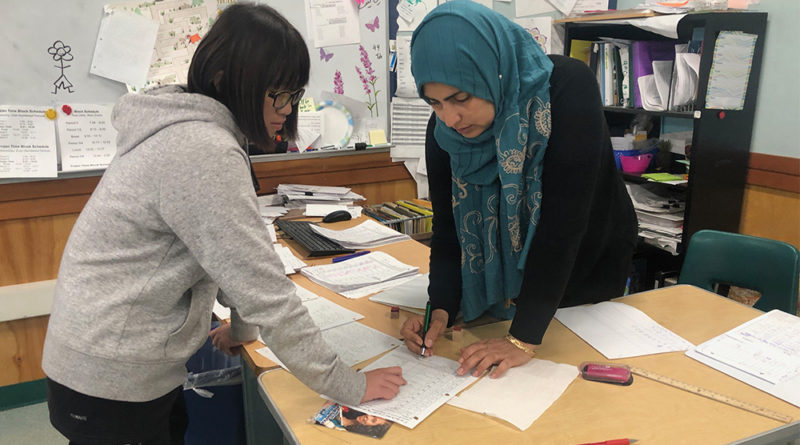Arabic to become language course at CVHS
Arabic may soon join the list of CVHS foreign language offerings, its potential teacher said.
“For sure there will be an Arabic class next year, if there are enough sign ups,” said Tagreed Badwai, an Integrated Two, EL (English Learners Math), and Arabic teacher, who has been teaching for 11 years.
“I am talking to other staff members and admin in the department to vouch to see how we can improve signups and appeal to students,” she said.
In the 2018 to 2019 school year, Arabic was supposed to be offered as a language course. However, there was an insufficient amount of signups and Arabic was taken off the list.
Perhaps a reason why people do not sign up for Arabic is because they are not exposed to the benefits of learning the language.
“First of all, Arabic gives students better job opportunities. Second of all, it is useful to better serve and communicate with many immigrants from other countries,” Badwai said.
Arabic is spoken in many countries, including Egypt, Iraq, Morocco, Lebanon, Syria, and Jordan, just to name a few.
“Because the area over there is rich with oil, rich with agriculture, and rich with history, you’re going to see jobs in many fields,” said Badwai.
Worldwide, Arabic is spoken by 430 million people, 1.1 million of which reside in the United States. Many universities have recognized Arabic as a fast growing language in the U.S. and teach it on campus, including UC Berkeley, UC San Diego, UC Santa Barbara, and UC Davis.
According to Badwai, both the difficulty of the class and amount of classes being offered next year will “depend on who signs up.”
“When I first came to the U.S., there were some situations that were challenging for me to understand because of the cultural barrier. The way you talk to people here is much different,” Badwai explained, describing her first years in California.
In Arabic class, students can expect to learn about schools and holidays in Arabic speaking regions, such as Eid.
“The amount of respect for elders is different, family bonds are different, and the way you treat your boss is also much different. Therefore, if I teach Arabic, I am going to share cultural aspects with students,” said Badwai.
Sticking with Arabic in the long term provides access to job opportunities across the globe and ability to communicate with over a million people in the U.S.

